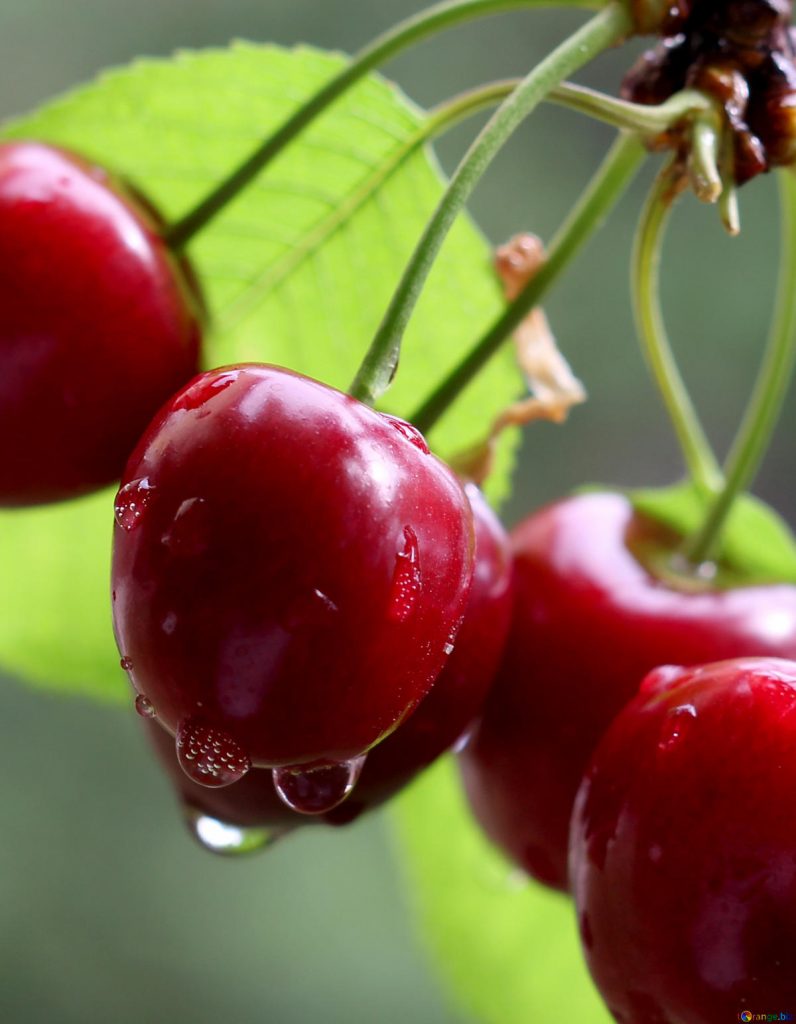Canada's cherry industry suffers 50% drop in season's volume

With Canada's cherry season now well underway, industry players are reporting a severe drop in the campaign's production, with a volume that's "easily half" of what it was last year.
"Overall, we're seeing a decreased crop due to winter damage and other factors. The quality on the trees was really nice but we've been getting a record rainfall...it's been a difficult year, with the lower yields," Gold Star Fruit Co.'s operations manager Balpreet Gill told FreshFruitPortal.com.
"With the rain, we're losing lots of fruit to waste - a lot of fruit is being split."
This is a much greater drop than the decline cherry growers were anticipating at the start of the season, he says.
"We're seeing a lot of shock at some growers' losses in their fields. Some are getting a good pullout...Some guys are at a 20% loss of crop, some are at 70% or 80%...for some growers, it's a complete loss."
This follows news earlier this month in which Sukhpaul Bal, from Hillcrest, said that some of the earlier, more susceptible varieties were seeing quite a bit of damage.
"Hit-and-miss" cherry damage
When asked whether some regions have been more affected than others, Gill points out: "It's kind of a random thing. I'm not sure if it has to do with the hardiness, the wood, or the pruning, but it seems like some farmers suffered from quite a bit of winter damage and some didn't suffer as much."
Bikaramjit Sandhu, operations manager at Sandhu Fruit Farm, also emphasizes how "hit-and-miss" the season has been so far.
He elaborates: "I think we have more fruit than last year in our orchards - probably 5-10% more. But I have a neighbor that's not picking one block because the fruit's split quite severely, but he and I put the same efforts in protecting our fruit from the rain."
Whereas cherry farmers were harvesting eight to 10 metric tons (MT) per acre last year, this year some growers aren't getting more than one-and-a-half to two MT, Gill stresses.
Strong market sees sparse supply
On account of the lighter supply, he notes that prices are "significantly higher" than in past seasons, with an increase that's "at least 30% or so" above last year's.
Yet he's quick to point out that though the category is fetching higher prices, this hasn't made up for the season's huge losses.
He explains: "The fruit has to make it to the box for the price to even matter. There's a lot of fruit going to waste because of rain, and it's just a difficult season."
While Canada's lower volume originally led to bigger and higher-quality fruit, the almost constant rain in cherry-producing regions damaged that quality, he explains.
"We got both ends of the sword so to speak; we got less fruit that just ended up being of average quality because of the rain.
"So we're down in yields to begin with and then the rain is decreasing the amount of packable fruit because not all the fruit is being packed and is ending up in the landfill as waste."
Canada struggles to meet export market demands
Regarding conditions in the country's key export destinations, Gill says: "Our export markets are strong, the pricing is good...the demand is there, but we need to have an extremely high quality of fruit to ship to those markets successfully. And with the rain, it's becoming more and more difficult every day."
These circumstances will certainly affect the country's export volume to China. The North American nation's exports there had increased 82% last year, but Gill believes matching those shipments this season will likely not be possible.
Regarding export conditions, Sandhu explains further: "Not many people are buying right now and this could be due to the Washington fruit, where they think it's better fruit; it could also be the fact that there's been rain damage, and with China - the political landscape. So, all those factors are playing a huge role."
Tech advances are 'making all the difference'
With extreme weather events affecting growers' crops, Gill points out that, in his company's case, utilizing optical grading advances has saved an unfortunate situation from being worse.
"Our company itself works with a company called Unitech, they're an optical cherry grading company...we just recently, last year installed a brand new Unitech Cherry Vision 2 machine, and it's been a massive help.
"Without that machine, some of the cherries that we were packing would not be packable. Optical grading has made all the difference- without it, we would be in big trouble."
This is because some of the bigger fruit that has split would be impossible to pack without the technology, he says.
Other farmers have also benefitted from such sorters, he adds.
"We've seen probably a dozen, maybe two dozen rains so far this season. Without the Unitech sorter, this season would be next to impossible for some farmers.
"It was a really big help in a year like this."









































